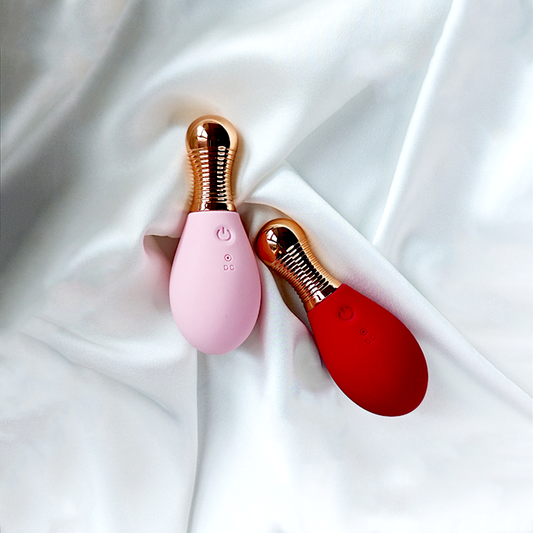
How Long Does an Orgasm Last?
The Science, the Fun, and the Myths Behind the Enormous Complexity of O
If you have ever wondered how long an orgasm actually lasts, you are definitely not alone. One of those questions seems simple. However, it is a mix of biology, brain activity, and a bit of mystery. People discuss it, brag about it, and sometimes even fake it, but what truly happens when your body hits that magical peak?
Today we are going deep into the world of orgasms. Not literally, of course, but deep enough to explore what science knows and what remains a delightful secret.
1. What Is an Orgasm, Truly?
Before we count the seconds, we have to understand what we are actually discussing. An orgasm is not just one event.
A full-body response occurs. This response includes muscle contractions, increased blood flow, and a rush of happy brain chemicals. These chemicals include dopamine, oxytocin, and endorphins.
Think of it as your body’s ultimate reward system. Every nerve, every muscle, and even your brain joins a short but intense party.
Phases of the Sexual Response
Most researchers agree there are four stages in the sexual response cycle:
| Phase | What Happens |
|---|---|
| Excitement | Blood flow increases, muscles tense, breathing speeds up |
| Plateau | Sensations intensify, muscles tighten further |
| Orgasm | Rhythmic muscle contractions, release of tension, brain chemical surge |
| Resolution | Relaxation, satisfaction, and maybe a nap |
These phases vary for everyone. For some, they come like a wave that rises and falls naturally. For others, it is more like a firework that goes off fast and bright.
2. So, How Long Does an Orgasm Last?
The million-dollar question!
The truth is: it depends on your body, your mood, your hormones, and even the kind of stimulation. But here is what science says from real data, not locker-room legends.
Average Duration by Gender
| Type | Average Duration | Research Insight |
|---|---|---|
| Female Orgasm | Around 20 seconds (can range 10–60) | Measured in lab studies and fMRI experiments |
| Male Orgasm | Around 6–10 seconds | Based on pelvic contraction recordings |
| Multiple Orgasms (female) | Up to 3 in sequence, each lasting 10–20 seconds | Some women can “stack” orgasms with minimal recovery |
| Multiple Orgasms (male) | Rare, but possible with training and practice | Requires control and non-ejaculatory focus |
So yes, women generally get the longer ride. But everyone’s body has its own rhythm, and no stopwatch can fully capture the personal feeling of release.
3. Why Do Female Orgasms Last Longer?

A woman’s orgasm usually includes a series of contractions in the pelvic muscles and uterus. It also involves a brain response that remains active longer after climax.
Studies using MRI have shown that even when the body looks relaxed, the pleasure centers in the female brain can stay active. They can keep firing for up to 30 seconds after the main muscle contractions. That is like an encore performance after the show.
Women can also have a “blended orgasm.” This is a mix of clitoral and internal stimulation. It makes the experience even better. This combination lights up multiple nerve pathways, which may be why it feels richer and lasts longer.
Therefore, it is particularly important to explore the physiological secrets of women. Whether it is for your orgasmic experience or for a perfectly matched sex life. Maybe you can click here Ignite Your Desire: Hotter Sex Life
4. What About Multiple Orgasms?
Let us be honest. The idea of multiple orgasms sounds like a sexual superpower.
For women, this is quite real. Some can have two or three in a row, sometimes separated by just a few seconds. The body does not enter a cool down phase as quickly as men do. This allows another wave of pleasure to come in.
For men, it is rarer, but not impossible. Men can train their bodies to experience multiple orgasms without ejaculation through breathing, edging, or pelvic control. This takes practice, but yes, some people can do it.
5. The Male Refractory Period: Why the Body Says “Give Me a Minute”
After orgasm, most men experience a refractory period, basically a biological timeout. During this time, the body cannot respond to sexual stimulation in the same way.
The duration varies wildly. It can be a few minutes for younger men, and up to a day or more for older men. Hormones, age, and physical condition all play a role.
The key hormone here is prolactin, which rises sharply after ejaculation and temporarily lowers arousal. Like your brain’s polite way of saying, “That was great, now rest.”
6. Psychological and Emotional Influences
Orgasm is not just physical. Also, it is deeply psychological.
Your brain plays the leading role in how intense and how long your orgasm lasts. Stress, anxiety, shame, and even body image can shorten or block it altogether. On the other hand, relaxation, trust, and emotional closeness can make it stronger and longer.
In a well-known study, researchers found that women who felt close to their partner had orgasms that lasted twice as long. Researchers compared this to women who felt distant. The body listens to the mind.
7. Can You Make Your Orgasms Last Longer?
Yes, and the best part is not rocket science.
Here are some research-backed (and fun) ways to help your orgasms last longer and feel stronger:
| Method | What It Does |
|---|---|
| Pelvic Floor Exercises (Kegels) | Strengthens the muscles that contract during orgasm |
| Edging | Builds up arousal by stopping before climax, leading to more powerful release |
| Mindful Breathing | Helps extend the plateau phase and improve body awareness |
| Lubrication | Reduces friction, making pleasure more consistent and longer lasting |
| Vibrators & Toys | Can increase sensitivity and help you explore different rhythms |
These are not magic tricks, they are practical ways to work with your body, not against it.
Consistency is key. Regular pelvic training, deep breathing, and communication with your partner can all contribute to longer, more satisfying orgasms.
8. The Role of Age and Health
As we age, changes in hormones, blood flow, and muscle tone can influence how long an orgasm lasts.
For women, menopause can lower vaginal sensitivity. However, many can regain strong orgasms with estrogen therapy, pelvic floor exercises, or regular stimulation.
For men, testosterone levels and vascular health are key. A healthy diet, good sleep, and exercise all make a difference. Think of it this way: what is good for your heart is usually good for your sex life too.
9. Myths That Refuse to Die
Let’s bust a few of the biggest myths around orgasm duration.
| Myth | The Truth |
|---|---|
| “Men always orgasm faster.” | Not always. Some men can control climax through breathing and pacing. |
| “Women need penetration to orgasm.” | False. Most women orgasm through clitoral stimulation. |
| “Longer means better.” | Not necessarily. Intensity and connection often matter more. |
| “You can train to orgasm for minutes.” | Maybe a few lucky ones, but most people peak within seconds, not minutes. |
Understanding your body’s limits helps you enjoy the experience more, not chase unrealistic expectations.
10. When to Seek Professional Advice
If you never reach orgasm, or it feels shorter than before, it could be because of physical or emotional reasons. These can include medication, stress, or hormonal changes.
Talking with a healthcare provider or sex therapist can help identify what is going on. No shame exists in asking for help. Pleasure is a normal and important part of health.
11. The Beautiful Variety of Human Orgasm
No two orgasms are identical. Sometimes they are short and explosive, sometimes slow and deep, sometimes they sneak up and catch you off guard in the shower.
The beauty is in the variety. What matters most is not how long it lasts, but how much you are present in the moment. "Whether it is ten seconds or thirty, your body is saying, 'Congratulations, you are alive and connected.'"
12. Final Thoughts
So, how long does an orgasm last?
Science gives us numbers, ten seconds, twenty, maybe more. But experience tells us it is more than that. A mix of chemistry, emotion, connection, and joy exists.
To have longer and stronger orgasms, keep these tips in mind:
- Know your body.
- Relax your mind.
- Explore freely.
- Stay curious.
Because the more you learn about pleasure, the more you will enjoy every delicious second of it.
References (Not Included in Word Count)
- Wise NJ et al. (2017). “Female orgasm in fMRI studies.” Journal of Sexual Medicine.
- Waldinger MD et al. (2005). “Intravaginal Ejaculatory Latency Time distribution.” Journal of Sexual Medicine.
- Komisaruk BR et al. (2011). “Brain activity during orgasm in women.” Socioaffective Neuroscience & Psychology.
- Brotto LA et al. (2020). “Mindfulness and sexual function: A systematic review.” Journal of Sex Research.











